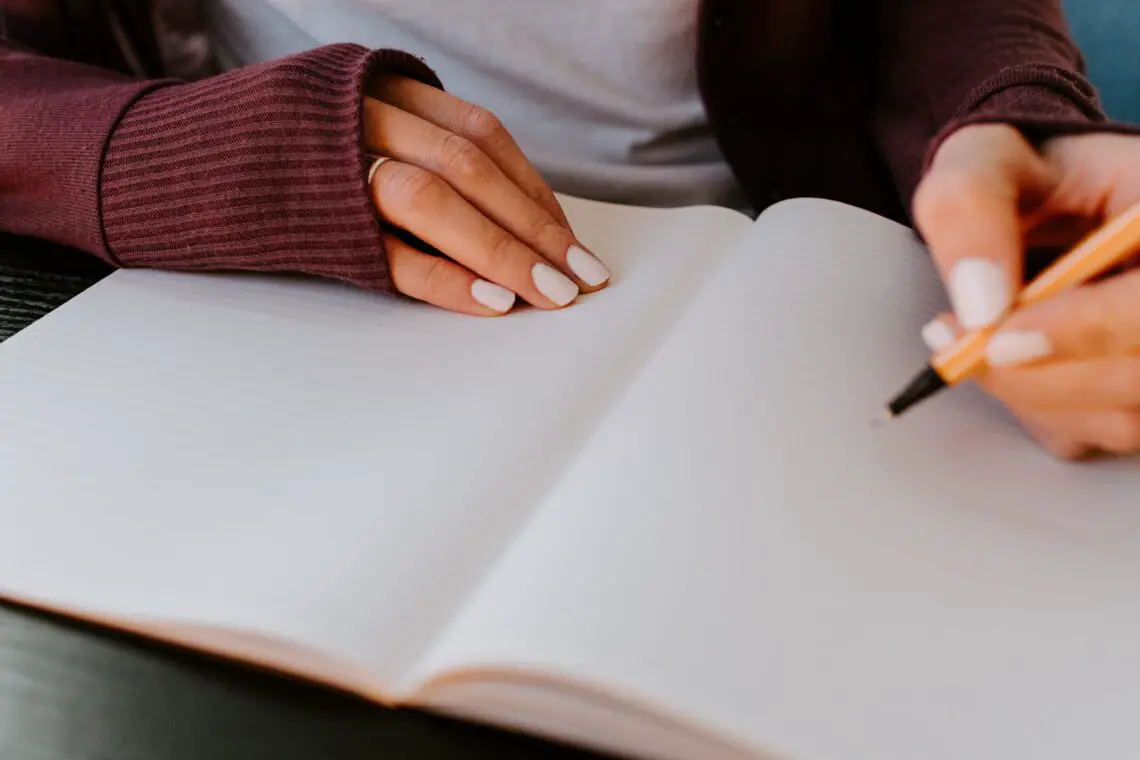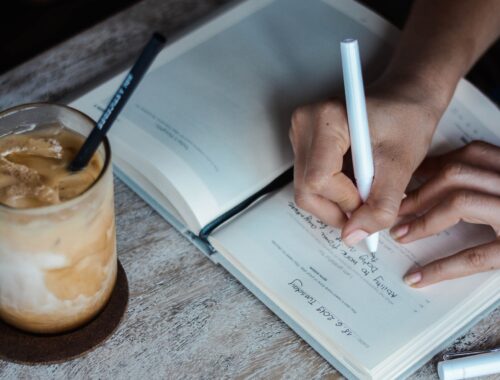
How to Use Journalling For Anxiety
This blog uses affiliate links and banners. If you purchase something from them I will receive a commission at no cost to you. I am part of the Amazon Associates program. As such, I receive a commission on qualifying products.
I’ve discussed journalling in the past- and it is such an important way to look out for your mental health.
Journalling can help you express gratitude, fight depression or work through any anxiety. It’s a helpful practice that anyone can try out. All you need is a journal, a pen and a bit of time to yourself.
In this blog post, I’ve put together a few tips about how to use journalling for anxiety- including useful and simple steps you can follow to implement this mental health practice into your daily routine.
1. Set aside a time each day
First of all, it’s important to set aside a bit of time each day.
This doesn’t have to be a lot of time. You could spend 5 minutes at the end of the day journalling, or set aside 20 minutes before you start work in the morning.
It’s important to take this time, as you need to properly work through everything that’s going on in your mind. If possible, try to take time alone to add to your journal, as this is your chance to really work on your anxiety and maybe even find a few solutions.
2. Write down your anxieties
Next, you need to get writing!
Writing down your worries can really help you get them out of your head and onto the page. In some cases, when you write something down, it becomes less intense- and you might even realise that it’s something you don’t need to overthink.

There are lots of different ways to journal. For example, you could try out free-writing. This means you write continuously for a set period of time without thinking about grammar or anything else. You could also try out a brain dump, writing anything and everything that comes into your head.
It’s all about whatever works for you!
3. Think about what you’ve written
After you’ve written down all your worries, it’s important to re-read them and think about them. Take the time to understand where your anxiety is coming from and if there’s anything you can do to reduce it.
You could ask yourself questions such as:
- Will your worry actually happen? Is it likely? Why?
- What is the worst-case scenario? Would this be as negative as your mind is making out?
- Is there something you can change to reduce your anxiety? Do you have control over anything in this situation?
By thinking about what you’ve written, you might also be able to identify some patterns. Have you worried about this issue in the past? Did anything bad happen then? Is there anything you could do differently now?
4. Come up with a plan
Next, it’s important to come up with a plan! Use what you’ve written to create an effective strategy that works for you and your anxiety.

This will detail how you can reduce your anxiety going forward- and how you’ll deal with your worry if it comes true. More often than not, your worry will be something that you’ve blown out of proportion that is causing you to overthink- but just coming up with a basic plan can help you feel a little calmer.
5. Reach out to other people
Journalling is a great tool to help with anxiety, but it can also help to reach out to other people, too. You could discuss your worries with a family member or you could talk to a mental health professional for a few journalling tips.
This will support your journalling. Sometimes just speaking through your anxieties can help you work through them, so take some time to discuss what’s on your mind with loved ones or a trusted therapist before or after you write in your journal.
You might like to keep your journal completely to yourself- and that’s okay too! It’s all about finding the right journalling technique and routine for you.
Do you have any tips about how to use journalling for anxiety? How do you like to journal? Let me know in the comments!
Take care everyone x



12 Comments
Kim Carberry
A few years ago when my youngest was suffering with her mental health someone suggested journalling to her and she has journalled ever since and it really did help her get all her worries written down and still does. x
Ali Duke
That is great that it has helped her so much.
Lauren
These are some great tips on how to use your journal for anxiety. Consistency is key I think too, making it part of your self care routine can be a great way to be able to stick to it. Writing down your anxieties can allow you to analyse some of your anxieties.
Thank you for sharing your experience.
Lauren – bournemouthgirl
Ali Duke
Thanks for reading. Consistency really does help.
Lanae Bond (@LanaeBond)
All of these tips are imporant. Having someone that is supportive is very helpful.
Ali Duke
Yes, it is.
Molly | Transatlantic Notes
I can definitely see how journaling can really help provide some structure when dealing with anxiety; I will have to give it a go. I like the idea of working through things in this way as it’s not something that requires too much preparation or expertise — you can just go with it!
Ali Duke
That is one of the great things about it, there are no rules and you can journal in a way that suits you.
Fransic verso
Before I start journaling, I thought it wouldn’t help but once I did. It helped me a lot. Writing down things helps me a lot. Thank you for these ways to use journaling.
Ali Duke
I am glad you found them useful.
Emma Colsey-Nicholls
I don’t suffer with anxiety thankfully. But journaling for the last 10 years or so is something that really helps me to maintain a feeling of balance in my life, especially when navigating hard times. Couldn’t be without it.
Some really great tips here.
Ali Duke
Thank you. Journaling is such a great tool.